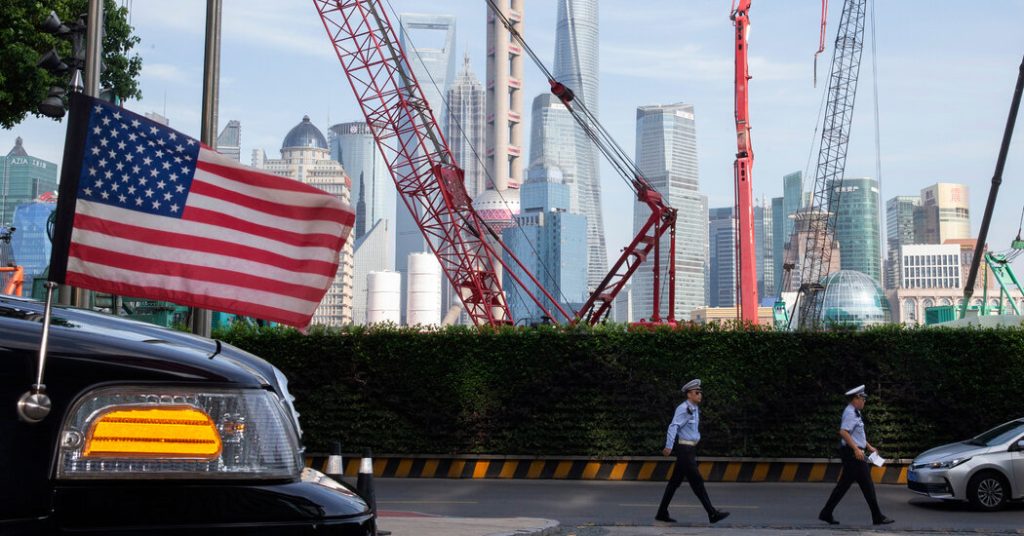The nonprofit groups track the imprisonment of Chinese political dissidents and the expansion of state censorship. They speak out for persecuted minority groups like the Uyghurs and Tibetans. And they help sustain attention on Beijing’s crackdown of freedoms in Hong Kong.
The future of their work is now in question as Elon Musk’s government efficiency operation takes aim at an important backer of such groups: the National Endowment for Democracy, or N.E.D., an American nonprofit largely funded by the United States.
Several China-focused nonprofits told The New York Times that the endowment had informed them this past week that their funding had been suspended indefinitely. Money distributed to the endowment was no longer being delivered after members of Mr. Musk’s so-called Department of Government Efficiency gained access to the Treasury Department’s payment system.
The stoppage of N.E.D. funds affects groups all over the world, but activists say the impact on groups focused on China will be especially severe. Such work has become more crucial — and risky — as Xi Jinping, the most powerful Chinese leader in decades, has waged a far-reaching crackdown on civil society and tightened control on information.
Across China, scores of activists, lawyers, journalists and intellectuals have been harassed, detained or jailed since Mr. Xi came to power in 2012. In the far-western region of Xinjiang, officials have detained and imprisoned an estimated hundreds of thousands of Uyghurs and members of other Muslim ethnic minorities.
It is unclear how many organizations have been affected by the cuts to the endowment’s funding. The Treasury Department and the endowment, which was allocated $315 million by Congress this year, did not respond to requests for comment. The Department of Government Efficiency could not be reached for comment.
The National Endowment for Democracy was established by Congress during the Reagan administration to bolster democracy worldwide. It has long attracted the ire of Beijing, which has accused the group of committing “evil deeds” by instigating protests and “colluding with anti-China destabilizing forces” in Taiwan, Hong Kong, Xinjiang and Tibet.
Among the endowment’s grantees is China Digital Times, a United States-based website that monitors Chinese internet controls and censorship. It recently exposed a Chinese state-sponsored disinformation campaign targeting Canada’s former finance minister Chrystia Freeland, who is running to succeed Prime Minister Justin Trudeau.
The website’s founder, Xiao Qiang, said his operations were “severely disrupted” by the funding suspension, resulting in pay cuts and work-hour reductions for staff.
“We are facing significant financial challenges that threaten our ability to continue our work,” said Mr. Xiao, whose website has been financially supported by the endowment since the site was established in 2013.
A representative of the World Uyghur Congress, a group of exiled Uyghurs, which has also seen its N.E.D. funding frozen, said the cuts came at a difficult time for their advocacy work. The group said that the plight of Muslim Uyghurs in China had been overshadowed by other global crises, like the wars in Ukraine and Gaza. And its advocacy efforts have been complicated by Beijing’s growing ability to silence its critics abroad by targeting their family members still in the country and pressuring governments to repatriate asylum seekers.
The funding was especially important, the group said, because private donors like companies or entrepreneurs with overseas business interests were more vulnerable to Chinese retribution.
Some activists had hoped that the Trump administration’s appointment of politicians with hawkish views on China was a sign that they would retain support from the United States. They lamented how abruptly the funds were cut.
“We in the China community were initially hopeful and optimistic about this administration because of appointments like Marco Rubio,” Zumretay Arkin, the vice president of the World Uyghur Congress, said about the secretary of state, who has long been critical of Beijing’s human rights record.
“We are shocked by how rapidly things have changed in not even a month,” she continued.
Li Qiang, the founder of the New York-based China Labor Watch, which seeks to end the forced labor and trafficking of Chinese workers, said he was told on Wednesday that N.E.D. funds to his group would be halted for the first time in the 23 years he has been a grantee of the organization.
He said the sweeping way in which Mr. Musk had mobilized people online to attack groups like the National Endowment for Democracy reminded him of political crackdowns in China aimed at consolidating control under a top leader.
“History has proven that this approach ultimately led to chaos in China, resulting in the deaths of thousands of innocent people,” Mr. Li said.
Chinese nationalist voices, on the other hand, applauded President Trump’s and Mr. Musk’s moves to cripple the endowment. China has accused it of fomenting all kinds of dissent against Beijing, including the 2019 antigovernment protests in Hong Kong. Beijing said the endowment’s support for rights groups there was an attempt at destabilizing the city and weakening Beijing’s control over it. (Hong Kong activists have rejected the accusation of foreign meddling as an attempt at belittling their grievances.)
“I’m undoubtedly happy about it, and, hopefully, this cutoff will be long-term instead of temporary,” said Hu Xijin, a retired editor in chief of The Global Times, a Communist Party tabloid, in an interview.
Wang Yiwei, the director of the Institute of International Affairs at Renmin University in Beijing, said the dismantling of U.S. foreign aid pointed to a retreat by the United States from the global stage. He said the endowment’s work was America’s way of interfering in the internal affairs of other countries and a waste of taxpayers’ money.
“China welcomes this, of course, and so do other countries,” he said.








